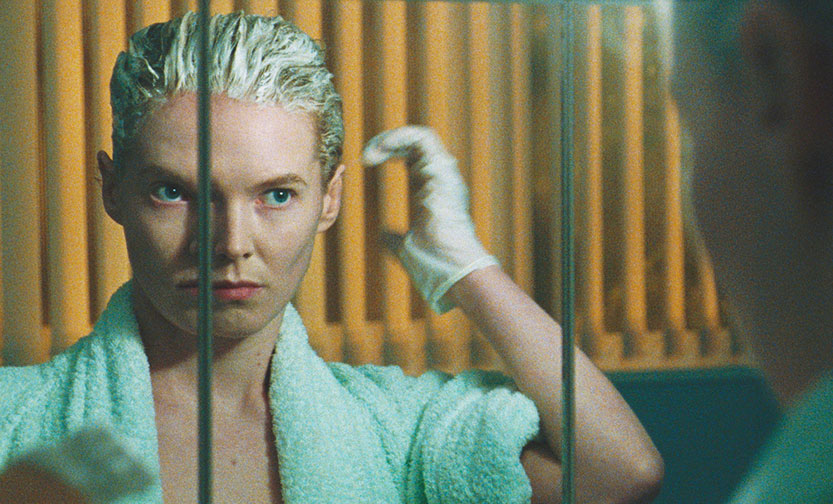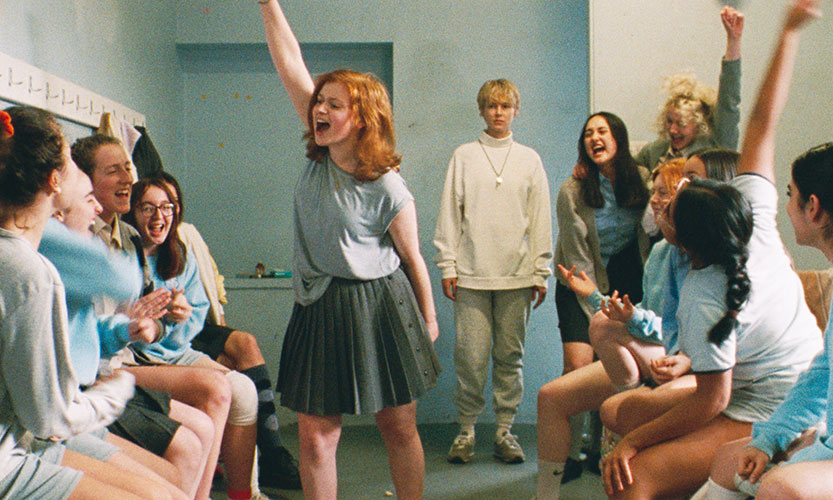Blue Jean
Blue Jean is powerful directorial debut from creator Georgie Oakley supported by the emotional range of lead Rosy McEwan.
Set in 1988 Britain, the film follows Jean, a lesbian high school teacher whose life is thrown into anxiety after the enactment of Prime Minister Margret Thatcher’s notorious Section 28 which prohibited the promotion of homosexuality.
The resultant job insecurity places palpable pressure on Jean to maintain a mask in her work life to the detriment of her personal relationships and values.
While the film brims with accolades worthy of recognition, its most noteworthy strength is arguably its balance. In both direction and character development, Blue Jean walks a tightrope with poignant delicacy.
Oakley manages to honestly embody the repressive social climate propagated by Section 28, without descending into melancholy. Our protagonist is not a shining ideal of nonconformity, but a real and flawed woman struggling under the burdens of discrimination and intergenerational trauma.
Yet despite this unvarnished exploration, the film’s gaze manages to be confronting without descending into pessimism. We are exposed to sadness and failure but also community and forgiveness.
In this way, while it is not as obvious a rebuke of the “bury your gays” literary trope – evident in other contemporary creations like Heartstopper (2022), Red White & Royal Blue (2023) and Bros (2022) – the film concludes with hope.
The narrative’s emotional landscape is keenly felt without being heavy handed. Its visual direction, at every turn, is beautiful and symbolically rich.
In carefully chosen moments, Oakley commendably eschews dramatic literalism in favour of an emotional realism that delivers a searing insight into characters interiors. The film’s blue colour palette unifies the narrative without falling prey to artificiality.
While in moments, this aesthetic choice is suggestive of Jean’s inner sadness it also hints at liberation – the euphoria inducing flashing blue lights in the club, the limitless stretch of the ocean and soaring blue skies all belie a burgeoning freedom and embracing of open spaces that foretell a brighter future.
Ultimately, the film favours the subtle victories of the inner life rather than embarking upon a quest to wrap up its narrative with a neat rainbow ribbon. As the phrase goes, “The horrors persist, but so do I”.
Jean will continue to live in a flawed society but her capacity to navigate such a world with courage and compassion has grown. The outer world will not destroy the sanctity of the inner life and as such, the victory is complete.
Sessions now showing – check Nova’s website for upcoming times/individual session times. •
For more information: cinemanova.com.au

Bottega Tasca: Carlton’s go-to fine wine boutique







 Download the Latest Edition
Download the Latest Edition